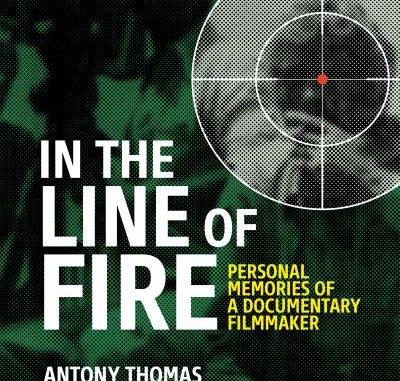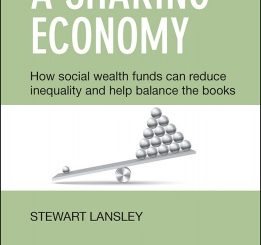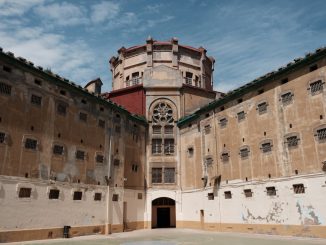
Book Review by David Shirreff
This tale, about the making of seminal documentaries over more than 50 years, underlines the sad truth that the world has not become a better place. But nor has it got much worse: human nature seems to have a consistent bias to do evil as well as good.
Antony Thomas was once a committed Christian, now he struggles between agnosticism and atheism. That is not surprising considering some of the appalling stories he has investigated during his career.
As a maker of television documentaries, Thomas has spent his life presenting examples of human behaviour and the outcome – be they Apartheid in South Africa, organised crime in Japan, executions in Saudi Arabia, faith-healing in America, genocide in Africa. He has tried as far as possible to make the facts speak for themselves, leaving the viewer to be the judge.
It is a sound principle, and one that he admits he learned the hard way. He made his first film on South Africa, Anatomy of Apartheid, in 1963, under the watchful eye of the Department of Information in Pretoria. Thomas allowed himself to be taken in by the official argument that the practice of apartheid – segregating whites from blacks and coloureds – was an interim stage in the country’s development, and that it would evolve into something better. Of course that was nonsense, as he later concluded. The huge difference in wealth and opportunities between whites and others was hammered home every day by privilege, prejudice, injustice and the machinery of the state.
Thomas made enduring friends in South Africa black and white, which led him to return and film several hard-hitting sequels to his embarrassing Anatomy.
His career spanned from the 1960s until his retirement in 2016, during which he made over fifty documentaries. Frequently they were about countries coming to terms with the remnants of empire, dynasties clinging to power, governments in hock to criminal gangs. Thomas would spend weeks or months preparing the ground, making contacts with locals, victims, gang leaders willing or daring to tell their tale. Then he would bring in his team to make the film as unobtrusively as possible.
After Anatomy of Apartheid his guiding principle became to let both sides have their say. Often he was in the position of the naïve optimist, hoping for the best in human nature, but uncovering the worst. That happened with two stories in particular: first, the execution of a Saudi princess and her lover, titled Death of a Princess, which caused a sensation when it was shown in 1980. The despotic, capricious nature of the Saudi regime was laid bare. Second, Miracles dealt with the mass-hysteria of faith-healing meetings in the United States, whereby poor disabled people, desperately seeking a cure, are cynically parted from their money. Most moving, perhaps, is the story “For Neda”, a young, educated Iranian woman who wanted intellectual and physical freedom. She joined the protest against a rigged election in June 2009 and was killed by gunfire. Neda had been warned: “Don’t come out looking so beautiful because they will shoot you.” She was too engaged to listen.
Thomas discovered early in his career that the path to death and disaster is paved with good intentions. In 1971, he and his film crew accompanied a large-scale expedition to climb Everest. Its crowning virtue was meant to be that it was international: the leader was a Swiss-American and thirteen nations were involved including two Britons, an Indian army officer, a Frenchman, two Japanese, a Swiss couple and others from Austria, Italy, Germany and Norway. Lack of a common language and culture was a problem, so was the expedition leader’s insistence on reaching decisions by consensus. That probably contributed to the death of the Indian, Harsh Bahuguna, who pushed himself to a state of exhaustion unnoticed by his Austrian climbing partner. The expedition failed despite heroic efforts by the Britons and the Japanese.
Thomas sets out his career as a series of lessons in which he learns from his mistakes. He is too hard on himself. A couple of times he confesses that he broke his own rules, for instance with Death of a Princess, which he reluctantly turned into a drama-documentary, to protect his sources; and in researching The Japanese Experience, when he lied to ingratiate himself with a Yakuza (organised crime) chief, inferring that his great uncle had been an extreme nationalist who died rather than betray his cause.
A couple of self-confessed “wrong turns” in a career of memorable documentaries is a fair record. Thomas’s introduction to his book, which describes his childhood, first in South Africa and then in England, is essential to understanding the man and the sense of morality which pervades his work. He acknowledges a big debt to Elsa, his forthright grandmother, who took care of him almost single-handed during those formative years.
This is an important book for anyone wishing to understand what makes good documentaries, and the guiding principles of integrity and even-handedness that should accompany them, even in the harshest conditions.
In the Line of Fire, Personal Memories of a Documentary Filmmaker, by Antony Thomas
Publisher: Unicorn
ISBN: 978-1914414336




Be the first to comment